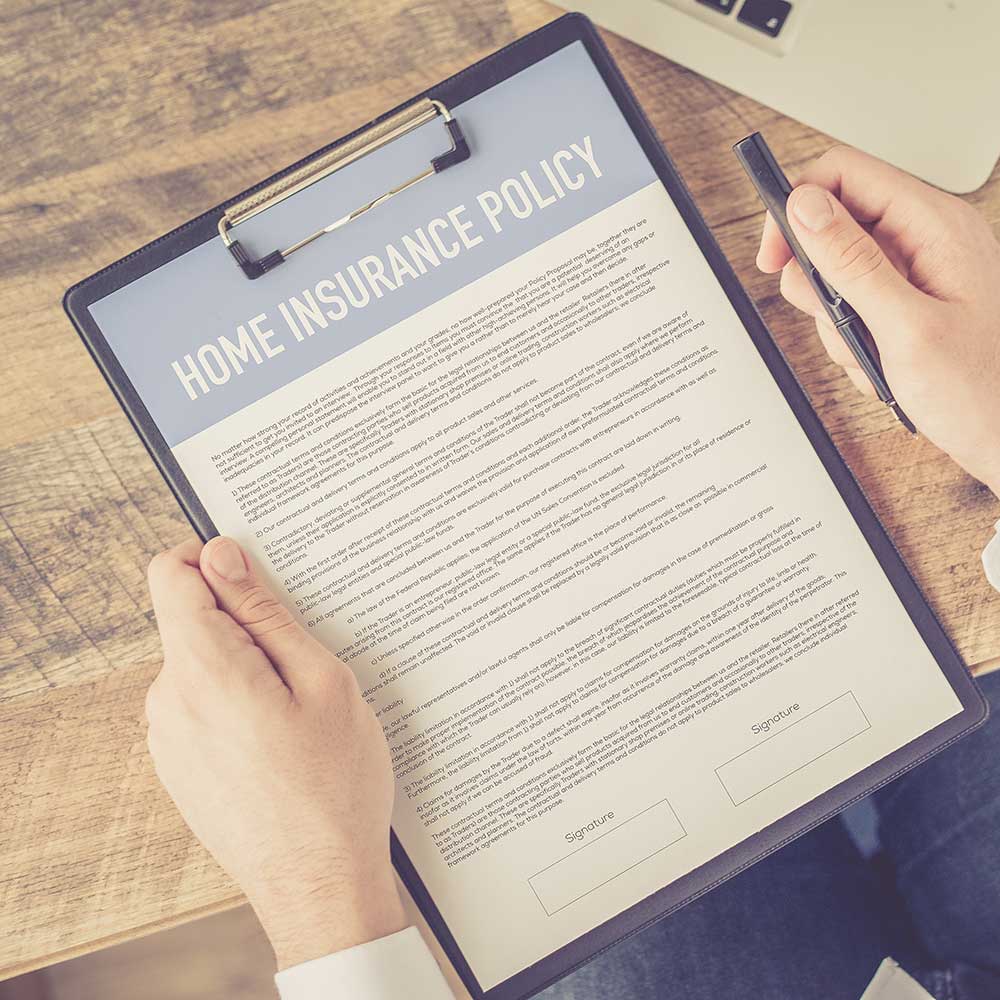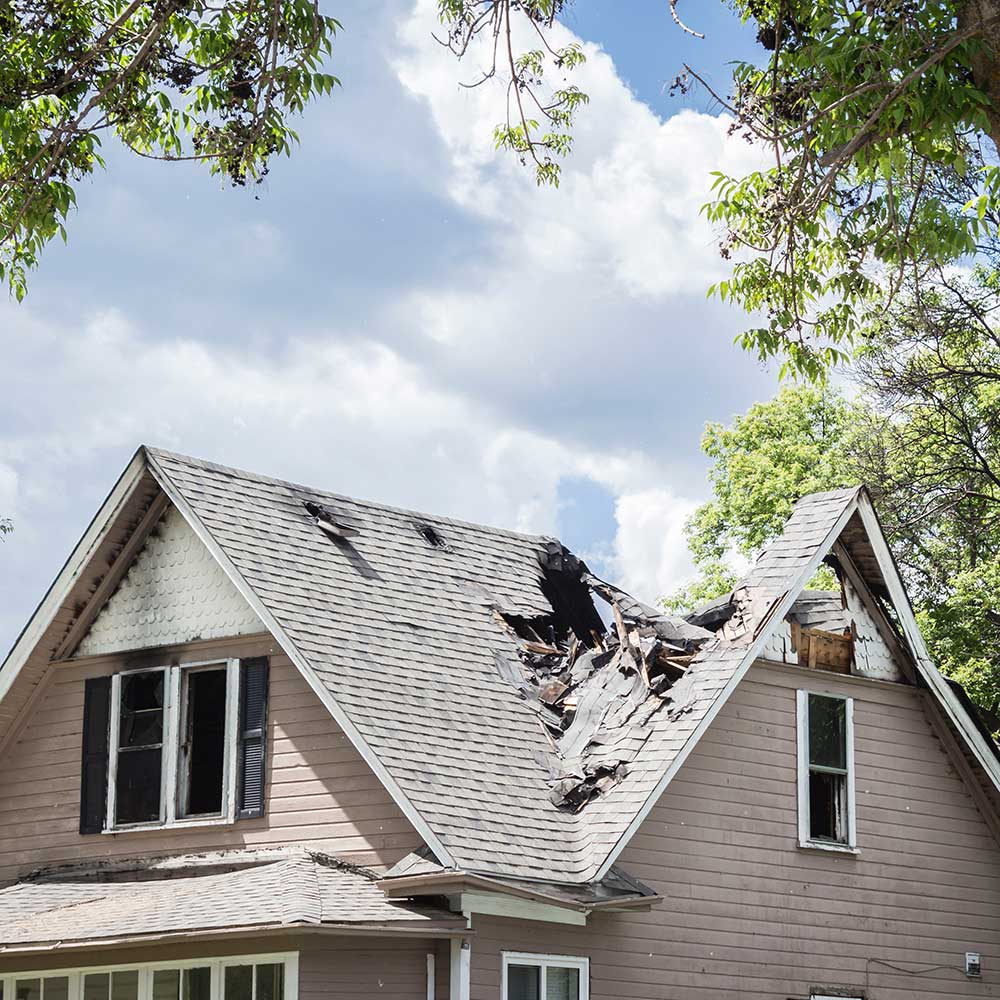HURRICANE PREPAREDNESS AND PROPERLY DAMAGE CLAIMS
The number of named storms in the United States in 2021 was 21, which was the third-highest number ever. Seven of those extreme weather occurrences—became half of the year’s record-breaking 14 hurricanes. The cost of the damage from Hurricane Ida, 2021’s costliest storm, was over $65 billion, and 87 people died as a result. Flooding, storm surge, winds, and rain can all cause serious damage to your house or place of business. Submitting a property damage claims and getting the compensation you deserve is paramount in these moments.
Unfortunately, insurance firms will use a variety of strategies to reject or undervalue your claim without giving you a good reason. Insurance claims for hurricane damage can be challenging since they sometimes involve many policies (such as ordinary home insurance and flood insurance), with one insurance company shifting liability to the other.
Fortunately, there are steps you can do to assist prevent storm damage to your family, home, or place of business. An expert lawyer on your side can assist you in obtaining the compensation you are deserve in the event of a property damage issue.
The Fischetti Law Group in Boynton Beach, Florida, is aware of your frustrations and is available to assist you with a property damage claims that has been unjustly postponed, denied, or underpaid due to weather-related incidences, such as hurricanes. We will do all we can to assist you in obtaining justice so that you can focus on repairing and recovering from any type of storm devastation.

How to Prepare Yourself for a Property Damage Claims Before a Hurricane Strikes
Your entire house (and life) can be in utter disarray after a hurricane. Probably the last thing on your mind will be paperwork. Unfortunately, making a successful hurricane property damage claims depends on having the appropriate documents. It’s therefore advisable to organize your affairs before the storm so that you are ready if something should happen.
To make sure your property is safeguarded, we have created a useful hurricane checklist that outlines preventative measures you may take before, during, and after a natural disaster. It is always a good idea to be prepared, even if you are not currently under a hurricane threat or dealing with an insurance claim for storm damage.
“We have an experienced team, faster than average turnaround times and amazing results & payouts."
Your To-Do List for "Before the Storm"
Many homeowners don’t know much about their insurance policies, but many consider buying insurance as a task to cross off their list. We all lead busy lives, but if you ever need to file a property damage claims, this could work against you severely. To be safe, we advise you to take the following actions to make sure you’re ready in the event of a storm:
– Read your policy and keep it with you:
To learn what damages are and are not within your policy, you need to educate yourself about it. To ensure that you will receive reimbursement for damages in the event of a hurricane, you may need to make changes to your policy. Carry your insurance card with you at all times.
– Take pictures:
Since it’s difficult to demonstrate the level of damage while things are in disarray, it’s crucial to take pictures and videos of the state of your property inside and outside, as well as, any priceless belongings, invoices, and receipts. It will be beneficial to always have before and after just in case there are damages of any kind after the storm passes. Also, keep an up-to-date “contents inventory” list: This is a list of all the items in your home, condo, apartment, or business.
– Report the claim early:
Reporting a timely property insurance claim is often a requirement of your policy of insurance but before you pick up the phone to report your loss, give your lawyer a call to get your damage claims.
Your “After the Storm” To-Do List
You will need to take action as soon as you get back to your property if a hurricane hits. Making preparations in advance will give you the chance to make sure that any damage to your home will be covered. Be ready to do the following:
– Prevent further damage to your home after the storm:
After the storm, protect your home from additional damage. You are accountable for this as a policyholder. To stop additional water damage, for instance, if your roof is blown off, it should be covered with a tarp.
– Make any repairs necessary to prevent further damage:
Make whatever repairs are required to stop additional damage. Hire a professional who is insured and licensed, for instance, to pump the water out of your home if it has flooded. Just remember to save the receipt!
– Take pictures and videos of all damages to your property:
A picture is worth a thousand words. After the storm has completely passed and it’s safe to do so, document the state of your property inside and outside, your assets/belongings, and the damages as much as possible.
– Don’t discard the evidence:
Make sure to save significant evidence during cleaning up. For example, if your roof becomes damaged during a storm, document your damaged roof and save the blown-off roof tiles for proof purposes.
Hurricane Damage FAQs
Follow These 6 Steps!
- Submit a claim to your insurance provider.
- Take pictures of any damage to your home’s interior and outside.
- Compare recent images with those captured prior to the storm.
- Have the property evaluated by a contractor, public adjuster, or damage specialist.
- Know what is and isn’t covered by your insurance policy.
- If your insurer is unjustly delaying, rejecting, or underpaying your claim, get in touch with a qualified storm damage attorney.
Not As Often As You Might Think!
Frequently, no. Wind and water damage are often covered by insurance, however, damage from floods is another element that is typically not covered by most plans. Whether your insurance coverage fully covers anticipated hurricane damage will rely on this. For instance, many plans don’t cover flood damage, which is surprising given that flooding is frequently the cause of a home’s most serious storm damage.
Homeowners must secure flood damage protection from a licensed private insurer or from a government agency like the National Flood Insurance Program or FEMA.
Make Sure They Don’t Trip You Up!
The maximum sum of money an insurance company will pay for a covered claim is determined by an insurance coverage limit. Additionally, there can be deadlines by which you must submit a claim for damage you’ve already sustained. You should carefully review your policy to determine what limitations are included.
Carefully Examine Your Policy
In the event that a covered risk and a non-covered peril combine to generate a loss, anti-concurrent provisions forbid recovery. For instance, your insurance would reject your claim even if your home receives both covered wind damage and non-covered flooding damage as a result of a hurricane.
Make The Right Choice!
We advise you to choose Replacement Cost Coverage (RCC) above Actual Cash Value (ACV) in order to prevent underinsurance. RCC is the price of repairing or replacing the damaged property with materials of comparable kind and quality, excluding any depreciation costs. Three categories can be used to categorize ACV payouts:
- The price of any necessary repairs or replacements, less depreciation.
- The damaged property’s “fair market value.”
- Employing the “wide evidence rule,” which requires insurers to take into account any relevant evidence of the value of the damaged property. We advise RCC because, if you file a claim, you’ll be compensated more fairly.
Right Here At Fischetti Law Group!
We suggest consulting with/hiring an insurance lawyer if your insurer is uncooperative and unresponsive, proposes a settlement without determining damages, undervalues your claim, or most importantly if you would feel better with more experienced advice. A lawyer can make the difference between getting the settlement you deserve.
Remember, often times the damage to your home does not manifest immediately, so a period of time may go by before you see visible signs of the damage. This is one of the many reasons it is so important to seek legal representation early on in the process.
As with any claim, make sure you document the damage, keep damaged materials, and log conversations with your insurance company. We can help you with your damage claims and we offer free consultation.
Fischetti Law Group Can Help Settle Your Property Damage Claims
Unfortunately, insurance firms will use a variety of strategies to reject or undervalue your claim without giving you a good reason. You require an expert lawyer on your side who can assist you in obtaining the compensation you are entitled to in the event of a property damage issue.
Attorney Michael Fischetti has years over years of experience dealing with insurance companies and understands the tactics they may use to avoid property payment of your claim. We can assist people with the following types of property damage claims:
- Homeowners’ insurance
- Weather damage claims: Hurricane damage and tropical storm damage
- Non-weather property damage claims
- Fire damage
- Tornado damage
- Sinkhole damage
- Bad faith claims
- Vandalism damage
- Civil remedy notices
- Hail damage
- Frozen pipes
- Wind damage
- Water damage
- Building collapse
- Lighting damage
Have your property damage claims been denied, underpaid, or undervalued? If you’re having trouble getting through to the insurance companies, which is a common occurrence, our team of experts can help you! They’ll determine if your policy can cover the cost of property damages and repair.
The Fischetti Law Group represents injured accident victims in the State of Florida. If you or your loved one has suffered an injury due to the negligence of others, Attorney Michael Fischetti is committed to helping homeowners recover the compensation to which they are entitled.
Give us a call today at 833-MIKE-247 to schedule a free consultation, to ensure that your claim is filed on time and that your rights are protected.

